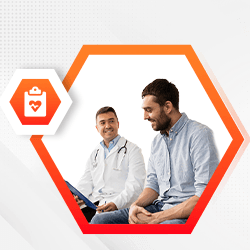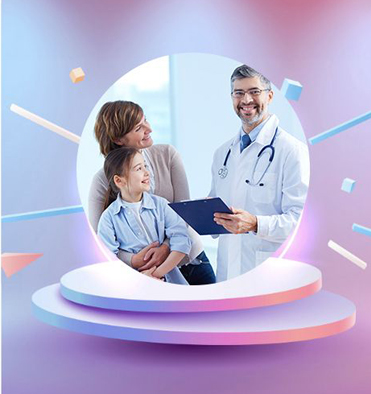Why Indus Health Plus?
Doctor counselling inclusive:
Detailed explanation of tests results by the doctor
Price:
Exceptionally reasonable.Almost 1/2 the market price of check-up packages offered by other hospitals and diagnostic centres

Presence in major metros and tier II and tier III cities:
Partner facilities present in 78 cities and 122 centres in 17 states
Same day reporting:
Even in the 60 test package, reports are given the very same day
Reliability:
Tests are conducted only at high end centres, which have facility of end-to-end diagnostics under one roof. So no possibility of mix-up / misplacement of reports
Greater number of tests:
Each package is comprehensively designed with several tests to get the better understanding of body’s functioning and status
Online accessibility:
Package can be bought at one place and utilised at any other Indus location. Ideal for gifting or buying for family members living in other cities
Tax exemption :
If you are a tax payer in India then Preventive Health Checkup (subject to a maximum of Rs. 5000) is eligible for deduction under section 80D (2) (b) of Income Tax Act, 1961 paid for yourself or your family from your taxable income.
An ISO 9001:2015 certified company Indus Health Plus is India's Leading Preventive Health Checkup Specialist which delivers health checkup at lowest price.
Are you looking to modify your lifestyle and habits to improve the quality of your life? Answer simple questions related to your Immunity, Fitness, Nutrition, Health and Habits check your health assessment. View More




